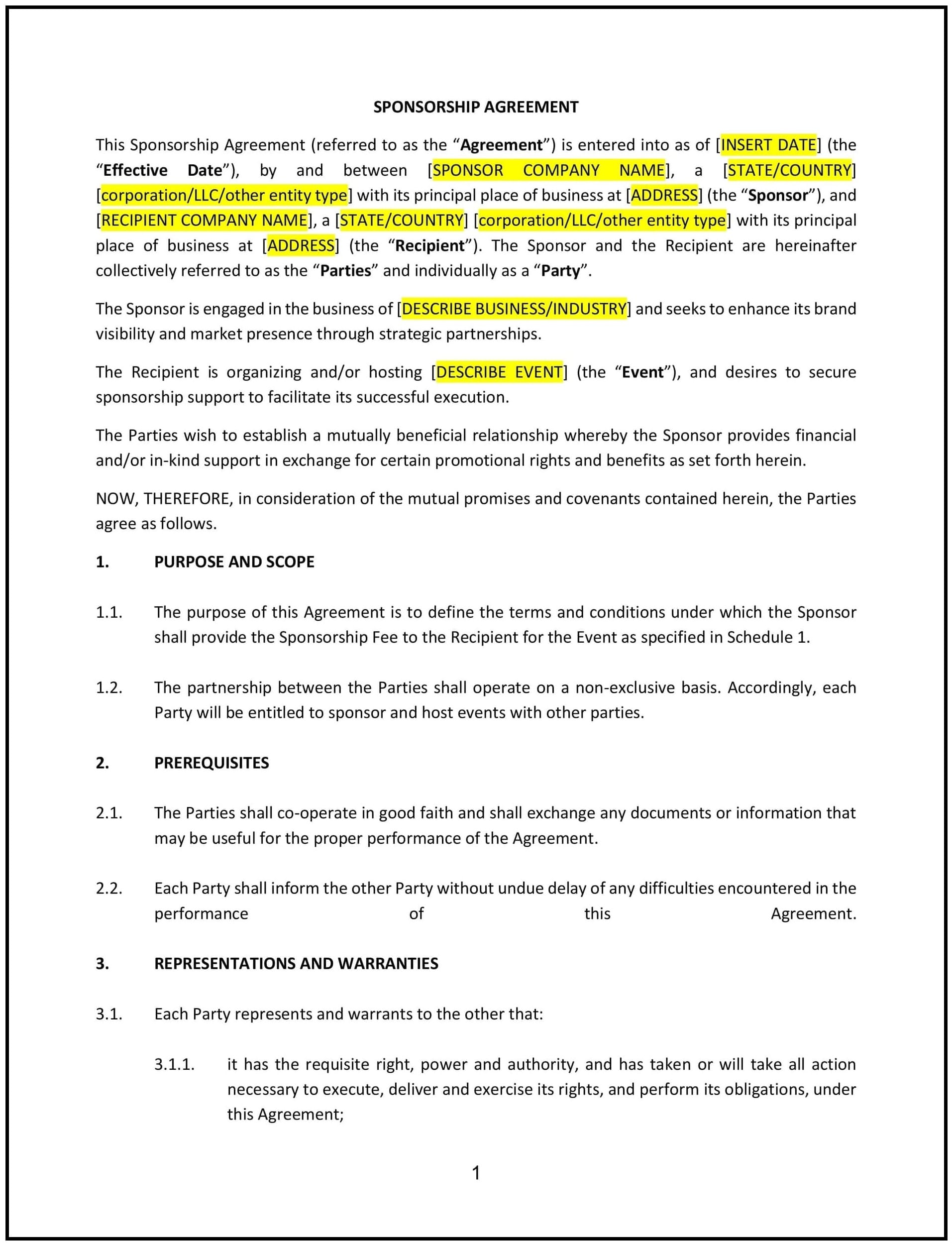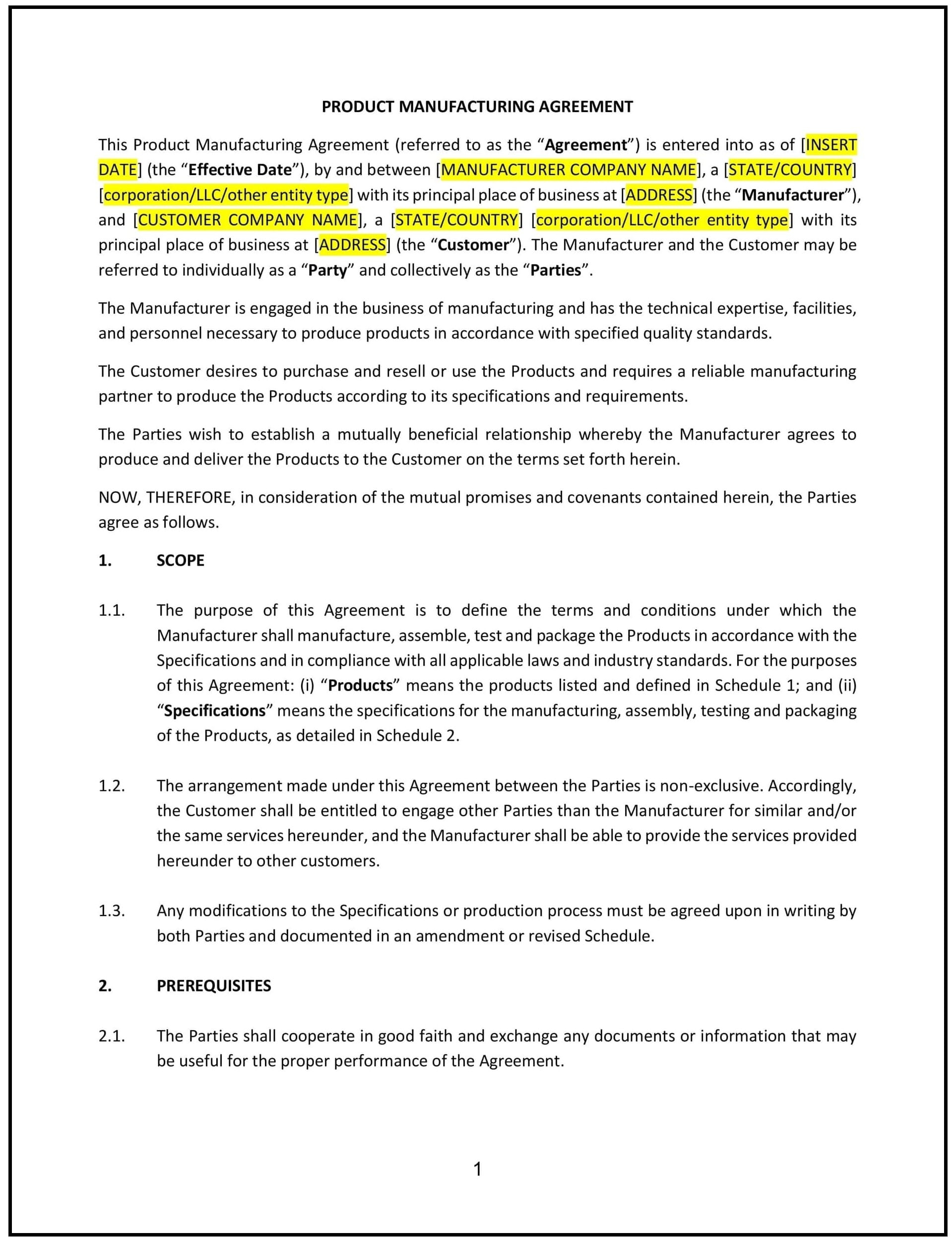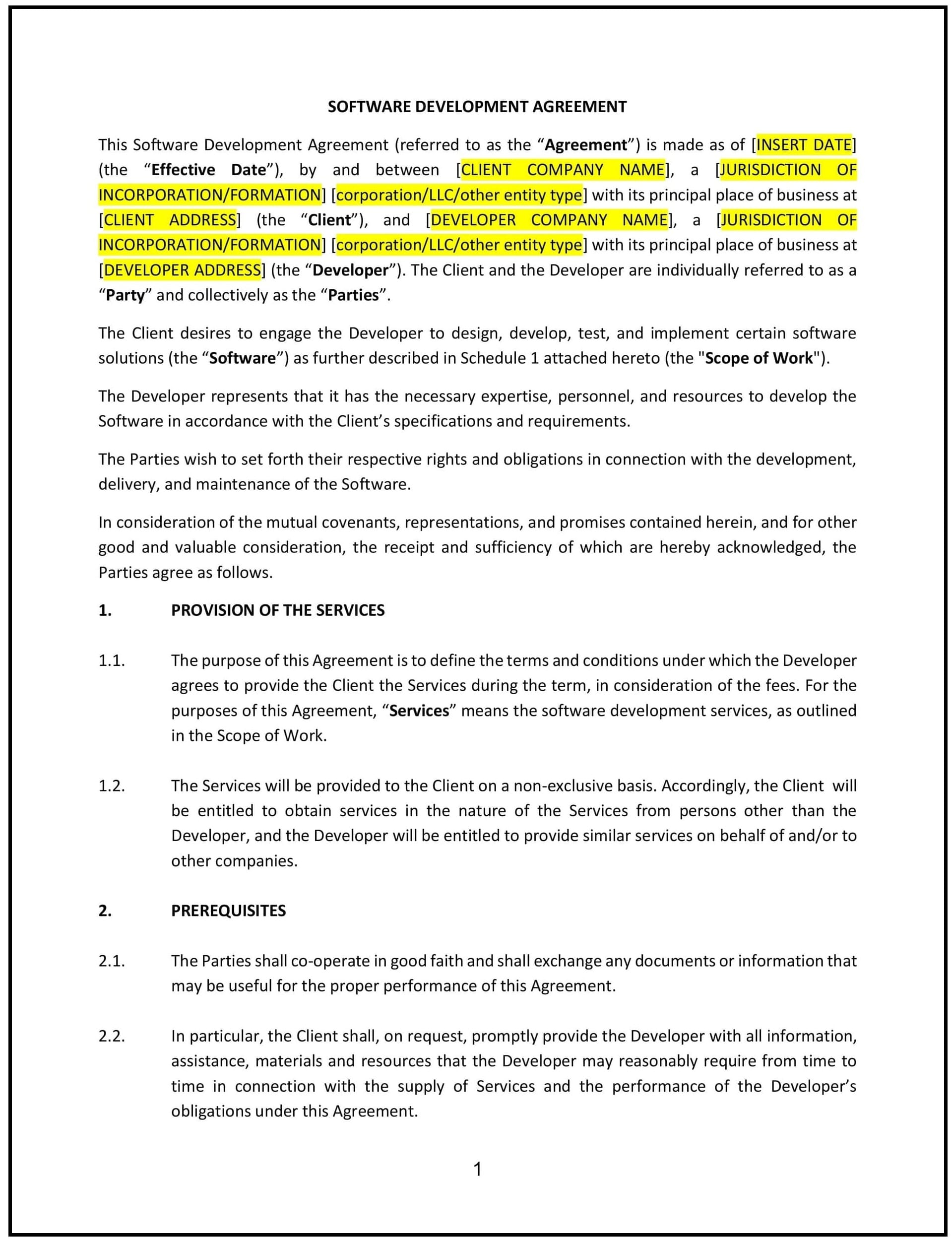Termination Agreement (Florida): Free template
Termination Agreement (Florida)
A Termination Agreement is a legally binding contract used to formally end an existing business relationship, partnership, or contractual arrangement between two or more parties. In Florida, this type of agreement is commonly used in industries such as technology, healthcare, retail, manufacturing, and professional services to ensure that the termination process is conducted smoothly, fairly, and in compliance with applicable laws.
Whether you're dissolving a partnership, ending a vendor contract, or terminating an employment agreement, a well-drafted Termination Agreement helps minimize disputes, clarify final obligations, and protect the interests of all parties involved. For example, a Tampa-based company might use a Termination Agreement to end a supplier contract, while a Jacksonville-based business might dissolve a joint venture with a partner.
This agreement ensures that all parties understand their rights and responsibilities during and after the termination process, including financial settlements, asset distribution, confidentiality obligations, and dispute resolution mechanisms. A properly executed Termination Agreement provides legal protection and closure for all parties.
Tips for drafting and maintaining a Termination Agreement in Florida
- Clearly state the purpose of termination: Specify the reason for ending the agreement, whether it’s due to breach of contract, mutual consent, expiration of the term, or other reasons.
- Example: “This Termination Agreement is entered into to formally end the partnership agreement dated [Original Agreement Date] between Party A and Party B.”
- Outline final obligations: Detail any remaining responsibilities of each party, such as completing outstanding deliverables, settling payments, or returning property.
- Tip: Include deadlines for fulfilling these obligations to avoid delays.
- Address financial settlements: Specify any payments, refunds, or reimbursements owed by either party. Ensure these terms are clear and agreed upon by all parties.
- Example: “Party A agrees to pay Party B $5,000 as a final settlement within 10 business days of signing this agreement.”
- Include confidentiality and non-disclosure clauses: Protect sensitive information shared during the original agreement by requiring parties to maintain confidentiality even after termination.
- Tip: Specify the duration of the confidentiality obligation, if applicable.
- Resolve intellectual property ownership: Clarify the status of intellectual property created or shared during the original agreement. Specify whether ownership transfers, remains with one party, or is licensed.
- Example: “All intellectual property developed under the original agreement shall remain the sole property of Party A.”
- Comply with Florida laws: Ensure the agreement adheres to Florida’s contract laws and any industry-specific regulations. For example, if the termination involves employees, ensure compliance with Florida’s labor laws.
- Tip: Consult with a lawyer to ensure full compliance with state and federal requirements.
- Include dispute resolution mechanisms: Specify how disputes related to the termination will be resolved, whether through negotiation, mediation, or arbitration. Indicate that Florida law will govern the agreement.
- Example: “Any disputes arising under this agreement shall be resolved through arbitration in Miami, Florida, in accordance with Florida law.”
- Keep records of the termination: Maintain copies of the signed Termination Agreement and any related documentation for future reference. This is especially important in case of future disputes or audits.
Frequently asked questions (FAQs)
Q: What should a Termination Agreement include in Florida?
A: It should include the reason for termination, final obligations of each party, financial settlements, confidentiality clauses, intellectual property ownership, compliance with Florida laws, and a process for resolving disputes.
Q: How does Florida law impact Termination Agreements?
A: Florida follows federal contract laws but also enforces state-specific regulations, such as labor laws and consumer protection statutes. Businesses must ensure their agreements comply with both state and federal requirements.
Q: Can a Termination Agreement be enforced in Florida?
A: Yes, as long as the agreement is clear, reasonable, and complies with Florida contract laws, it can be enforced. Including specific terms and signatures from all parties strengthens enforceability.
Q: What happens if one party breaches a Termination Agreement in Florida?
A: If one party breaches the agreement, the other party may have the right to seek damages, enforce remedies outlined in the contract, or pursue legal action. Including clear breach and enforcement clauses helps mitigate risks.
Q: What industries commonly use Termination Agreements in Florida?
A: Industries like technology, healthcare, retail, manufacturing, and professional services frequently use Termination Agreements in Florida. For example, a retailer might terminate a vendor contract, or a tech company might dissolve a partnership.
Q: How can businesses ensure compliance with Florida laws in Termination Agreements?
A: Businesses should ensure their agreements comply with Florida’s contract laws and industry-specific regulations. Regularly reviewing and updating the agreement is also essential to maintain compliance.
This article contains general legal information and does not contain legal advice. Cobrief is not a law firm or a substitute for an attorney or law firm. The law is complex and changes often. For legal advice, please ask a lawyer.


